Camera or Phone – Which Should You Take Traveling?
Former World Nomads scholarship winner Andres Brenner shares his tips on whether to use your smart phone or camera to capture your travel memories.
Shares
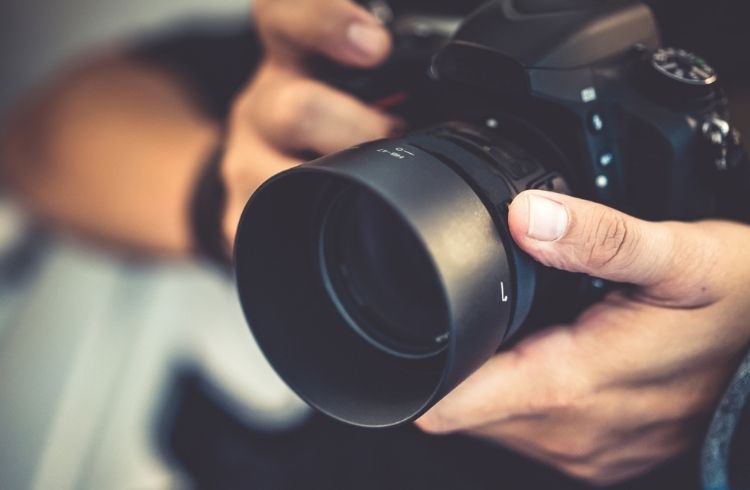 Photo © Getty Images/ArisSu
Photo © Getty Images/ArisSu
Traveling is one of the most beautiful and meaningful ways of spending time. Traveling takes you to unknown incredible places that will blow your mind and brings you to unexpected situations that help you connect with yourself.
Once back home, photos and videos are arguably the best way to recall how all that felt, and to bring all experiences back to life and live them again.
The dilemma between taking or not a camera on your trip is a very personal one. Each traveler will have their own arguments in favor or against it, but the truth is that nowadays it looks like the discussion won’t be about choosing between taking a camera or a phone, but more about adding a camera to your backpack. Your phone is always with you, while a camera is an extra. To pack or not to pack is a decision to be made based on each traveler’s needs.
- Phone or camera?
- What will you be taking photos for?
- What sort of trip will you be photographing?
- How easy will it be to travel with camera gear?
- What quality are you after?
- What level of performance do you want?
- What format do you want?
- Connecting to Wi-Fi
- Battery life
- Lenses and accessories
- Image editing
Phone or camera?
Every traveler wants stunning photos of their trips, but things get blurry when it comes to deciding between packing a bulky camera or just freeing up some extra memory space on your phone. Here are a few things to keep in mind when choosing between phone or camera for travel photography.
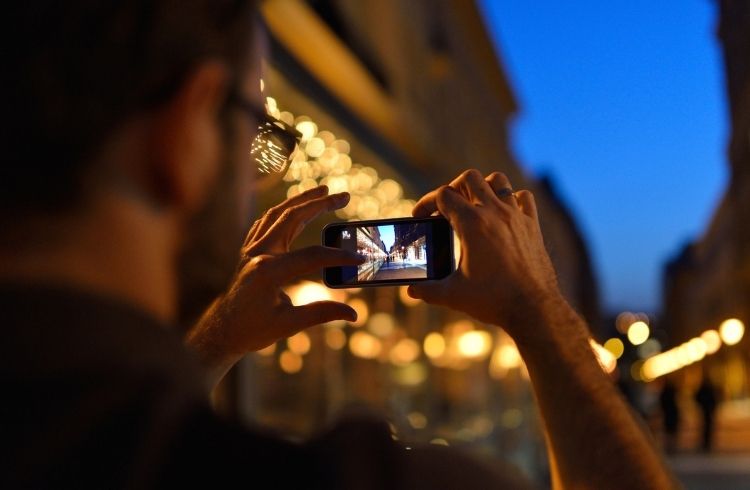
What will you be taking photos for?
In the last few years, phones have evolved so much that their image quality certainly competes with some of the best consumer cameras. One of the first questions that will definitely help is what you will be using your content for; is it to share with friends on your social networks? Are you an aspiring content creator and would like to increase your audience with outstanding images? Is there a chance that you will need your shots to be included in a professional project in the future?
Answers to these questions will start to tilt the scale towards one or the other side, but it is the combination of this first fact and many others that will give you a certain idea of what best fits your needs.
What sort of trip will you be photographing?
Admiring the Northern Lights, sunbathing at the Raja Ampat archipelago or hiking in the Himalayas? Every trip is different and there is not a general rule of thumb or a professional consensus about which kind of gear is best for a certain trip: your itinerary will give you its own clues. Destination, weather, and the kind of activities you will be performing during your journey are key to deciding your photo equipment. Does your device match these conditions?
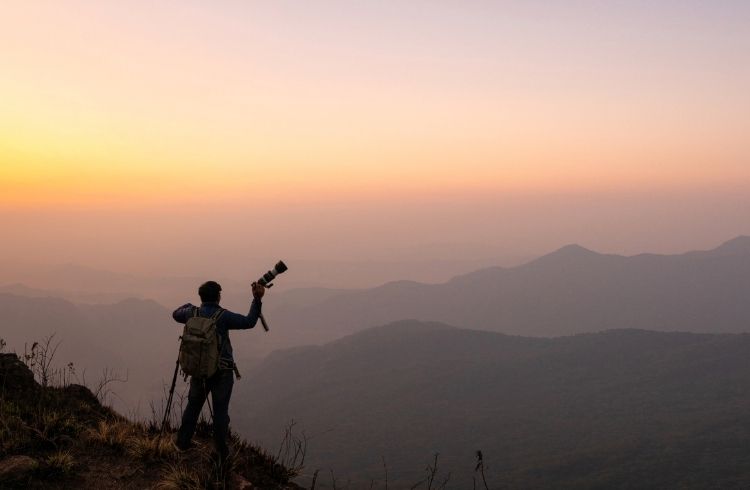
How easy will it be to travel with camera gear?
The weight and size of your chosen tool, combined with the means of transportation during your travels, are crucial to your comfort. If you are taking a gap year to backpack around the world traveling light will be a priority, but if you’re going to a beach for a week and moving around by car or taxi, weight and size of a camera will be something that shouldn't bother you at all.
What quality are you after?
Most phones deliver excellent photo and video quality, and most of us won’t be able to tell the difference between footage taken on a phone versus camera. But other functions, such as sound recording, grain, and dynamic range, will be superior on a digital camera.
What level of performance do you want?
When it comes to performance, there is a lot to keep in mind, both in phones and cameras. While cameras’ image stabilization has been considerably improved with 5-axis image stabilization built-in that lets you zoom, snap close-ups, and capture night scenes with great clarity, digital stabilization of high-end phones looks astonishing, too. However, if you also want to access manual shooting, being able to play with focus while filming, wide opening your diaphragm, setting with detail your white balance, and meticulously choosing your shutter speed you might need to go for a camera. Also, with a phone you might never match a camera in low light photography.
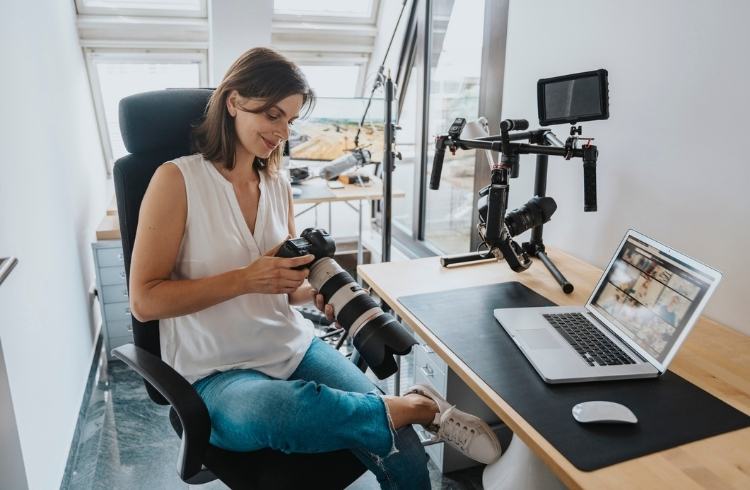
What format do you want?
Both phones and cameras allow you to film or take photos in a great variety of formats, but if you are planning to create videos for social networks, such as IG or TikTok, you might find it much easier and more comfortable to film in a vertical format (9:16) with your phone. Turning your camera 90 degrees just feels odd.
Connecting to Wi-Fi
Although most cameras have Wi-Fi connection to download your photos directly to your phone, if you are a content creator, influencer or just a devoted Instagrammer or TikToker, it will always be easier and faster to share what you have natively created with your phone. Also, for live streaming, a camera won’t be able to help.
Battery life
It’s not only about how long batteries last but also about how many batteries you will need to bring with you and how bulky camera-battery chargers are. While your phone may last all day without needing to be recharged, taking extra batteries for your camera plus a battery charger might be a pain if you are traveling for a long time or to remote areas.
Lenses and accessories
Photography is all about light, and before getting to the sensor light travels through a lens. The quality of your lens and its inner composition will define the sharpness of your image, will let you play with different depths of field, and will be responsible for a beautiful bokeh. These days, phones incorporate several good quality lenses to give the photographer various options that are more than enough for the average traveler, but if you are looking for an artisan look there is nothing like an interchangeable lens camera.
The bigger and heavier the device, the bigger and heavier its accessories. If you are a keen photographer, you might also consider taking filters, a tripod (for your camera) or mini tripod (for your phone) and a stabilizer and microphone if you think about shooting some videos too. All these accessories – and their weight – should also come into consideration when choosing your preferred photo device for your trip.
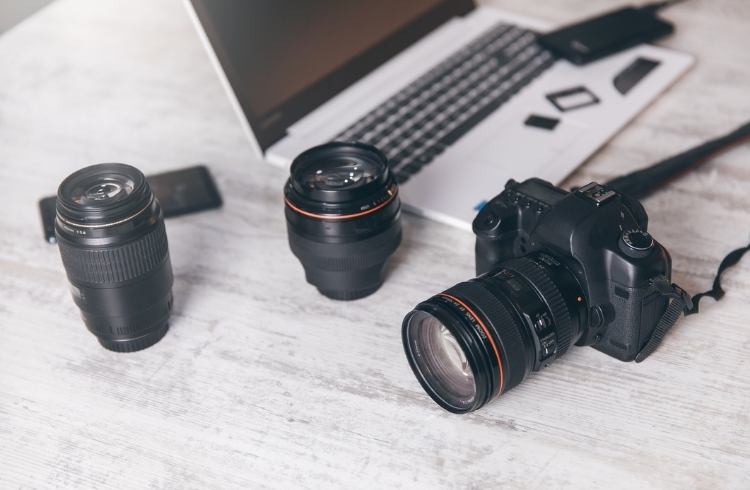
Image editing
Your photo isn’t finished yet when you hear the click of the shutter, that’s why editing capabilities of the files you captured are vital for flexibility in post. Phones include built-in editing tools that are good enough to share amateur content in social networks, but unless you have a high-end phone, cameras will offer a greater variety of professional formats for both photo and video files.
Related articles
Simple and flexible travel insurance
You can buy at home or while traveling, and claim online from anywhere in the world. With 150+ adventure activities covered and 24/7 emergency assistance.
Get a quote
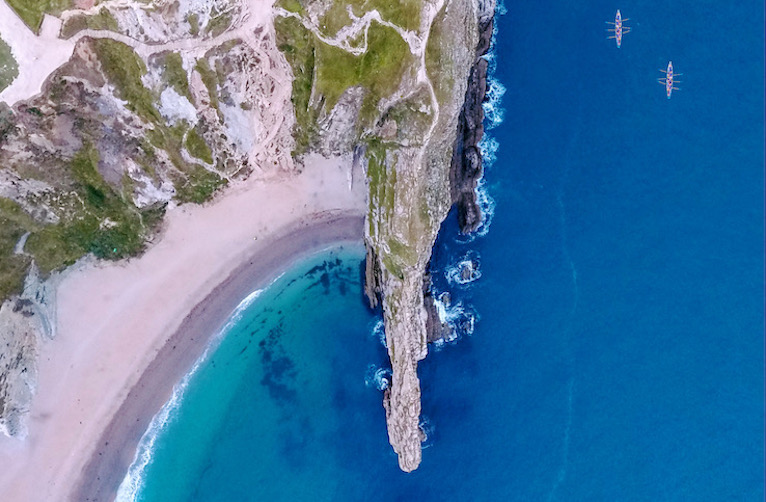
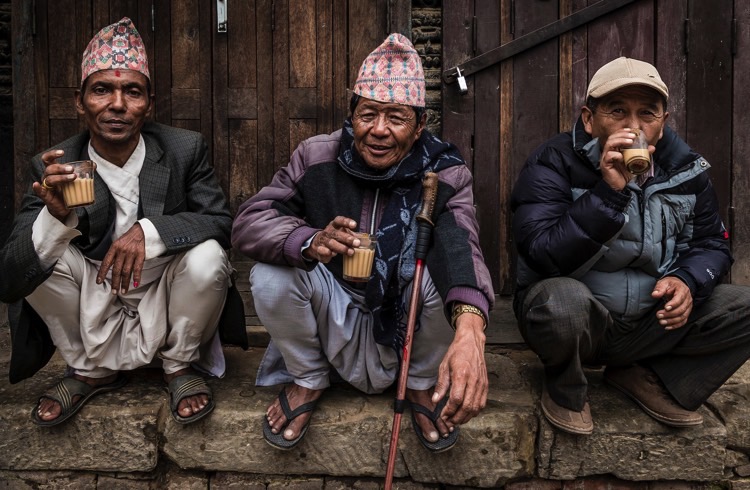
No Comments